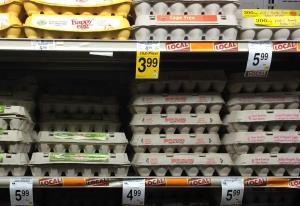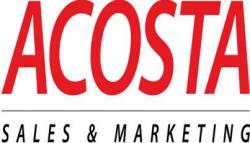Are Consumers Ready to Pack Pantries Again Following a COVID-19 Resurgence
|
08/10/2020 |
|
Market survey company Acosta recently determined that consumers will initiate a new cycle of stockpiling in the event that COVID-19 restrictions are reimposed. Two thirds of those responding consider that a lockdown is either extremely or somewhat likely and that this cohort is extremely concerned over the current incidence and mortality rates of the infection. More than a third of those surveyed indicated that they stocked up at the beginning of the COVID outbreak in March and intend once again to fill their pantries. Fifteen percent did not stock up in March, but are inclined to do so should circumstances change. Only a quarter of respondents did not stock up in March and have no intention of buying more than short-term requirements if restrictions are re-imposed.
|

Surge Pricing in March |
|
Darian Pickett, CEO of Acosta stated, "as COVID cases continue to rise most shoppers believe we're heading for another shutdown and plan to respond accordingly so retailers should be prepared for a new surge". He added "hand sanitizer, masks and gloves will be the most in-demand items in additional to basic school supplies and many will opt for online shopping with delivery options". The level of concern is illustrated by the fact that only 25 percent of those surveyed opined that they are looking forward to the holidays and do not plan to celebrate as usual. An equal proportion is apparently in denial with no forward planning for the holiday season. The remainder of respondents accepts that the holiday season will be disrupted and subject to restrictions.
 The important question is whether purchasing patterns influenced by COVID will or will not influence the seasonal increase in demand during the fourth quarter. If demand is moderated downward, given the size of the national flock, prices will be lower than production cost with a negative impact on annual profit. On balance there will be probably not be any lock-down given the timing of the 2020 election and the prevailing political climate. Recession and unemployment will however limit non-essential expenditure on consumables and gifts with inexpensive food, including eggs benefitting. The important question is whether purchasing patterns influenced by COVID will or will not influence the seasonal increase in demand during the fourth quarter. If demand is moderated downward, given the size of the national flock, prices will be lower than production cost with a negative impact on annual profit. On balance there will be probably not be any lock-down given the timing of the 2020 election and the prevailing political climate. Recession and unemployment will however limit non-essential expenditure on consumables and gifts with inexpensive food, including eggs benefitting.
|

|
|
|